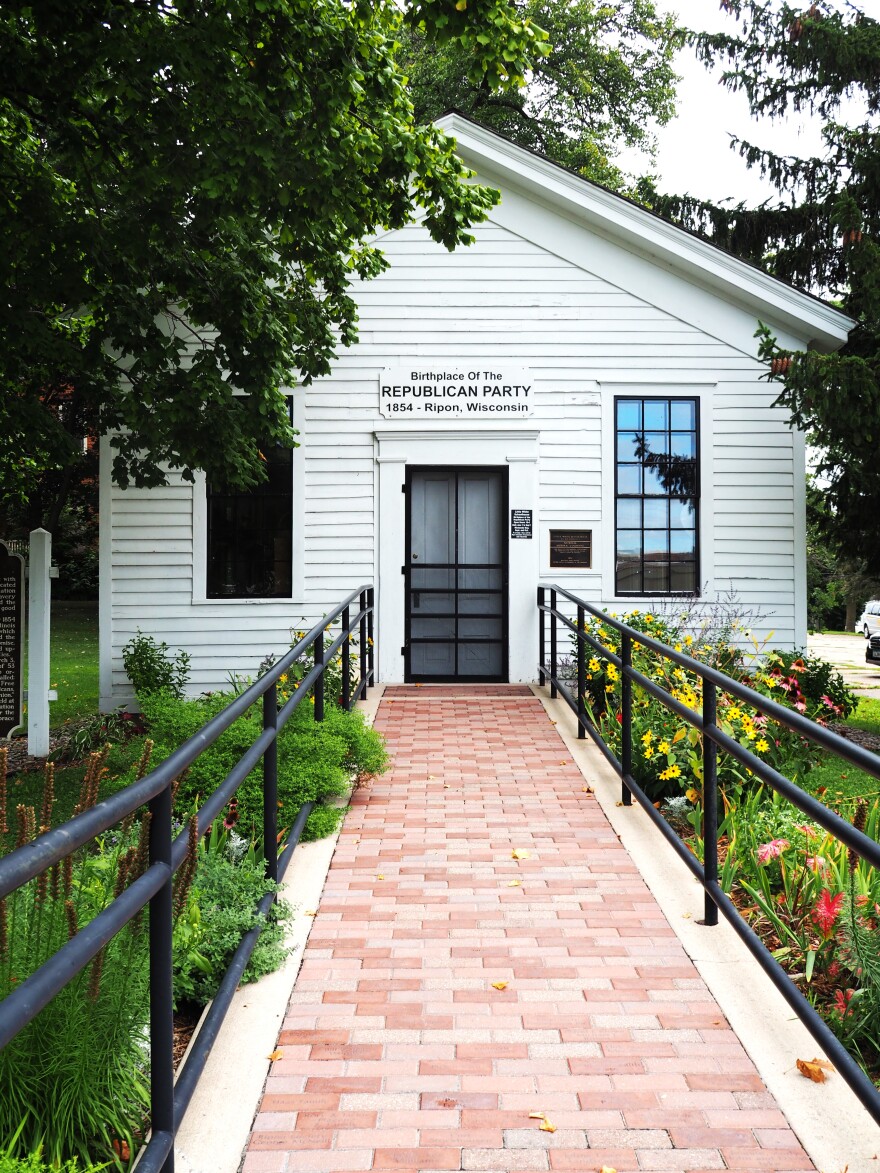An old picture of Ripon’s “Little White Schoolhouse” claims the place is the birthplace of the Republican party. That description may be a hair vainglorious, but you can't blame the town for staking a claim, because they're right, partly anyway. Their precious Little White School House wasn't the only birthplace of the Republican party. For the record, two other places make similar claims--one just across the lake in Jackson, Michigan, and another in faraway Maine. No Facebook streaming existed at the time, so while those three inaugurals went on hundreds of miles apart, what glued them together was a bloody grievance that had them all up in arms.
Just then, in 1854, Stephen Douglas, a stem-winding congressman who never met a debate he didn't like, presented a bill that drew out a plan for the nation, much smaller at the time, to deal with the burning issue of slavery. In legislation that ranks near the top ten worst bills to make it out of Congress, the Kansas-Nebraska Act slumped its way into law and history.
The Civil War didn’t start because of one pitiful congressional act, but keep that thought in mind because the Kansas-Nebraska Act ruled that what was then called the Territory of Nebraska (which included chunks of Nebraska, Kansas, Colorado) would be slave or would be free depending on what its residents determined it would be. Sounds like democracy, right? Maybe so, but soon enough it turned into Civil War.
Pro-slavery “border ruffians” poured into the territory, as did a cloud of hard-core abolitionists from way out east. White men and women on both sides, slave or free, had more, simply, than strong feelings; they shot and killed each other. It's that wickedly simple.
But now we're far afield from Ripon, Wisconsin. The night of the meeting, in the maw of a March blizzard and teeth-chattering temps, some angry locals got together to talk about a brand-new political party because most of them, Whigs at the time, couldn't abide being Jacksonian Democrats, nor could they stand being bound to an unholy alliance with Southern Whig slaveholders. So right there, in "the Little White Schoolhouse," Ripon, Wisconsin, a few fire-brand abolitionists, determined the time had come to split, to save the Republic--hence, a brand-new Republican party.
Oh, my, they were hated. Among slave-holding Democrats, the self-righteous abolitionists were despised. When the Rev. John Todd came up the Missouri on his way to an abolitionist church in Tabor, Iowa, he got into trouble long before he got to town. In a heated discussion about slavery, when one of the thugs detected an abolitionist, they wanted a scalp. "Shoot him," someone yelled. "Kill him." One idiot told him if it was his choice, he’d straight-up trade the pastor for a mongrel dog and shoot the dog. That man, Todd said in a memoir, was "a minister of the gospel from Missouri."
If you think politics today are lethal, you’re not wrong; but what fomented godawful outrage in little Ripon, Wisconsin, was nothing to shake a stick at. That anger, all that divisiveness resulted in Shiloh, Bull Run, and Gettysburg, to name just a few.
The only way in and out of Ripon, Wisconsin are still just two-lane roads, so if you want to take in the place and its marvelous story, you’ll likely have to go out of your way to find “the Little White Schoolhouse.”
Right now, they’re moving it. For years that famous little place stood a block east of downtown, where you could drive right by and miss it, standing as it did amid ancient oaks and maples. It's moving to greater prominence out west of town, where “the birthplace of the Republican Party,” will be more visible, more of a feature of this village in central Wisconsin, and this hothouse of radical and—get this!--liberal Republican politics.
In the Trump era, make of that what you will.










